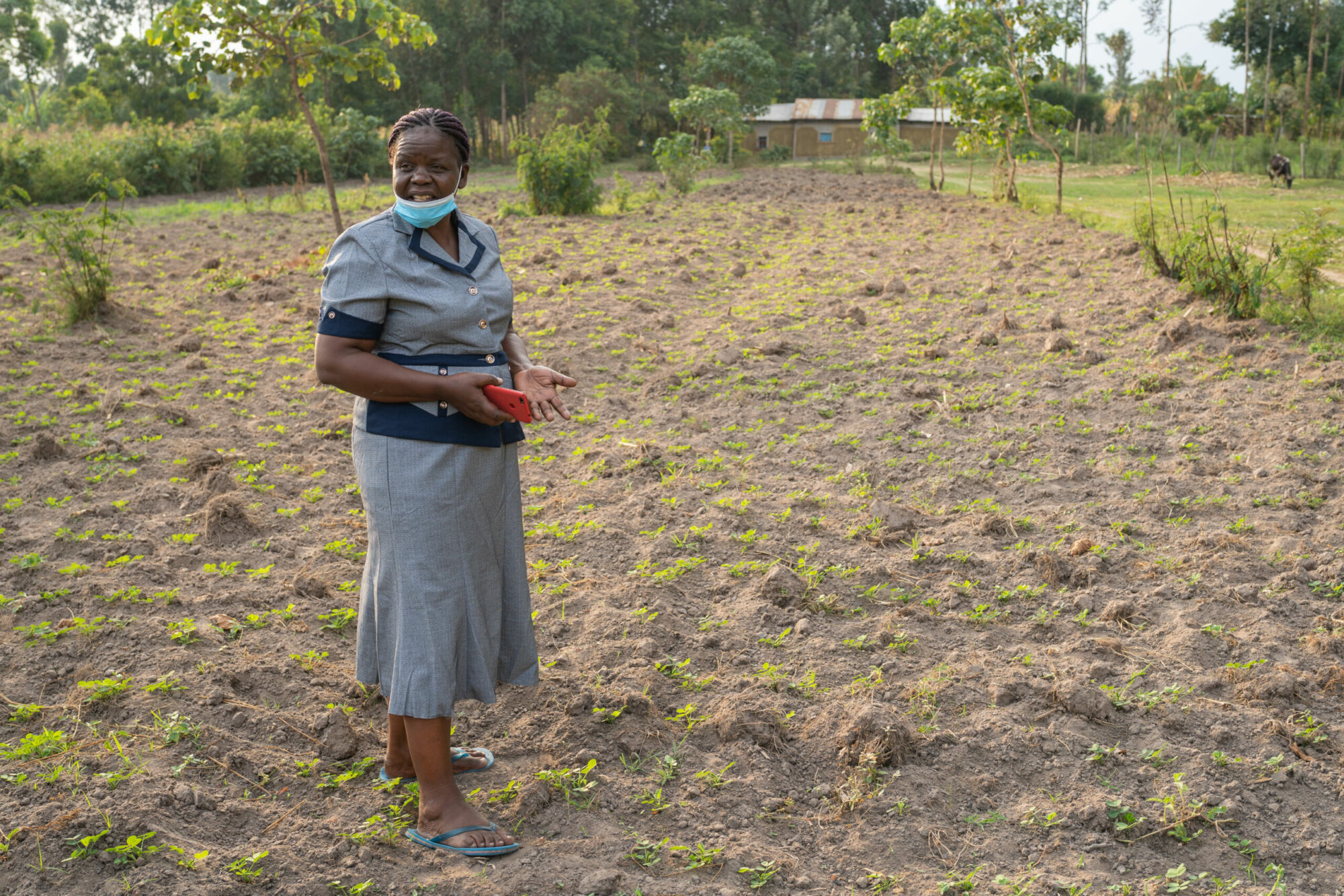Jane Lusweti runs her poultry enterprise from her backyard with her husband. The couple spread the droppings from the chickens are onto their two acre farm to grow maize, and have stopped applying chemical fertilisers. Using the resources they have to hand reduces their farming costs considerably. Old mattresses, for instance, keep newly hatched chicks warm.
When Jane first started farming, she produced less than a sack of maize per harvest. Learning about the fertility of the soil and techniques to resist climate change altered the way she farms, and she has been able to increase her yield to the extent that she can rest assured that her family will have food all year – and some to sell. Her kitchen garden ensures that she also has good access to vegetables.
She also says that Vi Agroforestry has contributed to a better gender distribution of work around the home. The women have learnt to chart their evolving roles in the household. Men and women alike can travel away to learn new farming techniques, and then come home and share their knowledge.
“I’m very free now. If I want to go to Nairobi to do a course for a week, or a training, then come back, I’m free to go, and I am welcomed when I return. Because my husband knows that there is nothing I’ll learn there that I won’t implement here immediately” she explains.
When it comes to leadership, Jane says that more and more women, herself included, have stepped up as leaders in their own right.
“Don’t be a prisoner in your own home! You’re not a beast of burden,” she emphasises.
Vi Agroforestry has showed Jane and her husband how to do a household road map, to understand where they are coming from and where they are going with their enterprise, and how to divide tasks between them in a way they both approve of. Next up, Jane would like to start driving her own car to take her chickens to interested buyers.
“Our finances keep on improving thanks to these farming methods,” she concludes proudly. “There is no hunger.”

